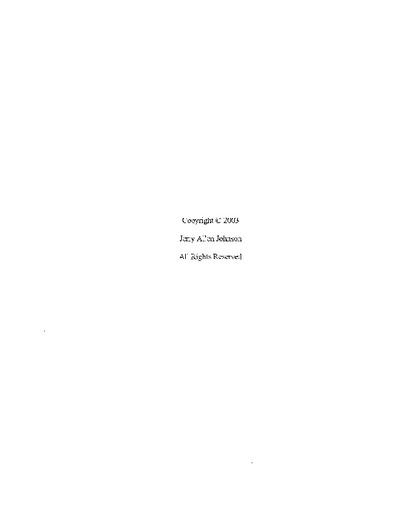| dc.description.abstract | This dissertation examines Peter Singer's proposed ethical value of the "person" in Rethinking Life and Death . Chapter 1 introduces and outlines Singer's proposal, which argues for abortion, infanticide, euthanasia, and assisted suicide. His proposal consists of four key points. First, there is the foundation for his proposal--rejecting creation for evolution. Second, there is the substance of his proposal--replacing the value of the "human" with the value of the "person." Third, there is the criteria for his proposal--using "indicators" and "relevant characteristics" to identify the kinds of beings who qualify as "persons." Fourth, there are the consequences of his proposal--promising an ethical "Copernican Revolution."
Chapters 2-5 critically evaluate the four key ideas from Singer above. The evaluation of the respective key idea in each chapter covers five steps: (1) the context of Singer's proposal; (2) the content of Singer's proposal; (3) positive evaluation; (4) negative critique; and (5) conclusion. The research methodology for the dissertation is to treat Singer's ethical proposal on the "person" as a hypothesis to be tested by his own truth standards of logical consistency, empirical evidence, and practicality. Following these four key chapters, Chapter 6 provides "Summary and Conclusions."
The conclusion of this dissertation is that Peter Singer's proposal on life and death is not to be commended because its key elements are not supported by his own standards for testing truth. In fact, when examined by his own truth tests, Singer's program should be rejected because its foundation is faulty, its substance is illusory, its criteria are circular, and its consequences would be grave. | en_US |

